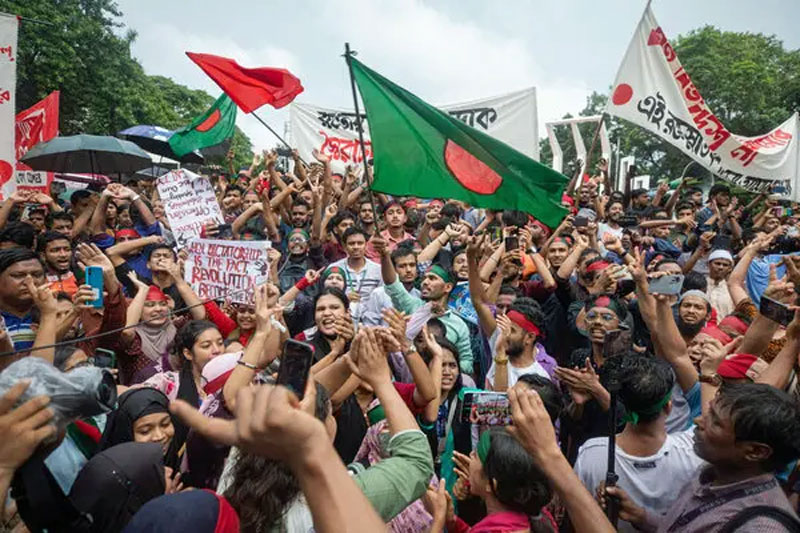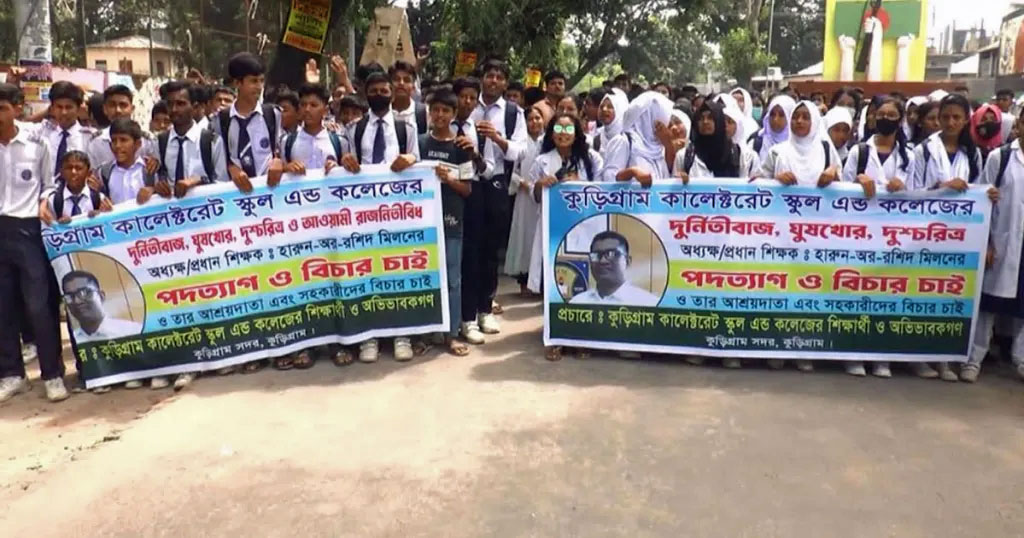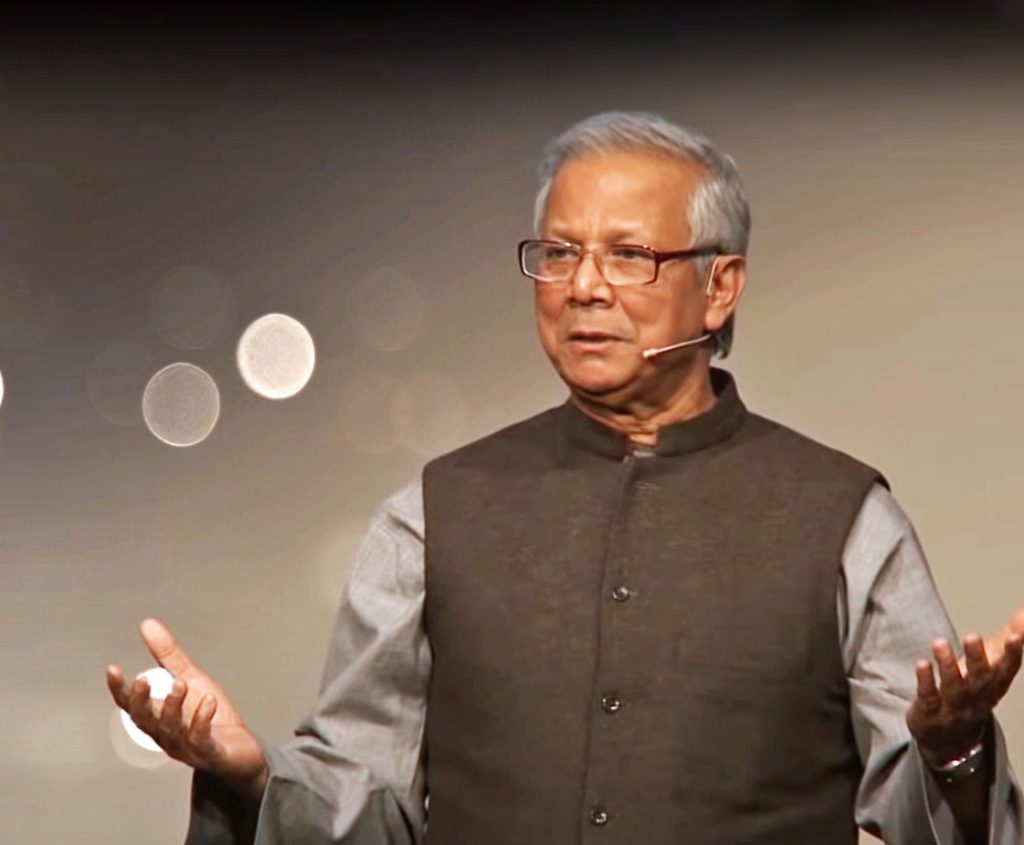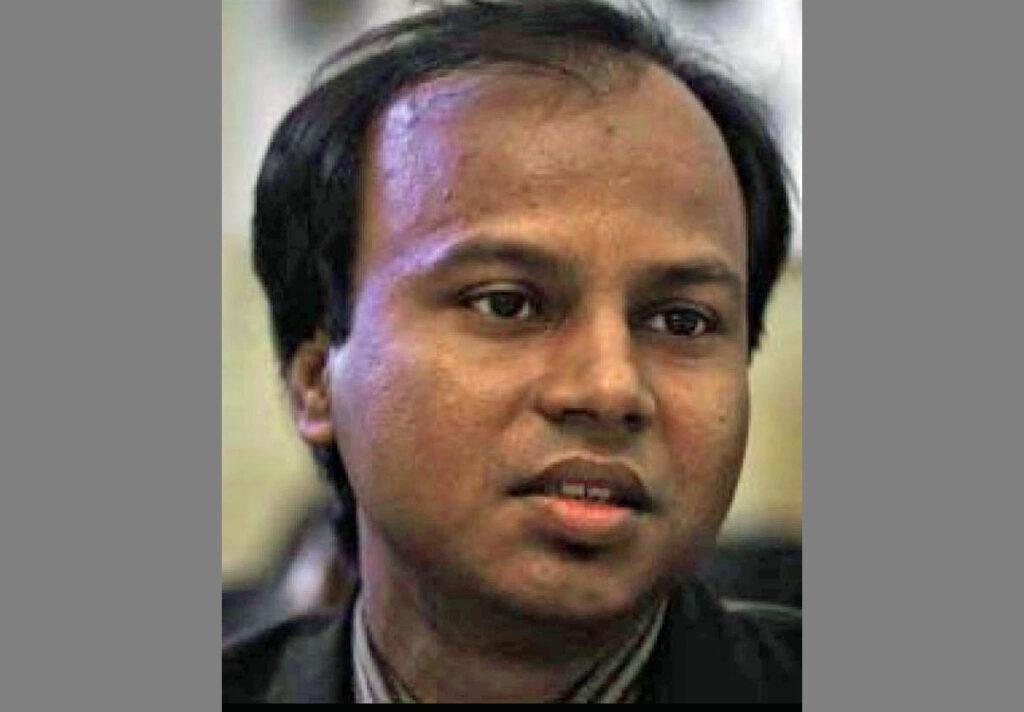LGBT teachers suffer as new Bangladesh regime focuses on regaining stability
COMMENTARY: With priority given to political reorganization, social protections falter.

In recent months, Bangladesh has witnessed a disturbing rise in violence and discrimination against LGBT educators, coinciding with the formation of an interim government led by Nobel laureate Muhammad Yunus.
By Shahanur Islam
While the political transition aimed to usher in stability after the contentious tenure of former Prime Minister Sheikh Hasina, this shift has exposed deep societal fissures and exacerbated existing vulnerabilities faced by marginalized communities.
The backdrop of this violence lies in the chaotic political environment that culminated in Hasina’s resignation. Her tenure, marked by increasingly authoritarian measures, had sparked widespread protests and a corresponding harsh crackdown on dissent. Following her exit and the establishment of Yunus’s interim leadership, the focus of governance shifted toward stabilizing the political landscape rather than addressing pressing human rights concerns.
However, this governance vacuum had unintended consequences. The transitional government’s prioritization of political reorganization over social protections allowed prejudices and extremist elements to gain ground. Reports from rights groups and local sources indicate that acts of violence targeting LGBT teachers have surged during this period, driven by emboldened societal norms that view non-heteronormative identities with hostility.

Specific incidents have highlighted the severe risks faced by LGBT educators. The suspension of the principal of Kurigram Collegiate School due to their sexual orientation sent shockwaves through the educational community. Similarly, a professor at Islamic University, Kushtia, was barred from all academic activities following revelations about their identity. Most tragically, a kindergarten teacher in Meherpur was killed in what is believed to be a hate-motivated attack. These examples underscore the perilous environment LGBT educators face in their pursuit of professional and personal safety.

Historically, the LGBT community in Bangladesh has faced systemic discrimination, but the heightened political instability has further weakened institutional safeguards. The interim government, embroiled in maintaining order and placating various political factions, has struggled to counteract these acts of violence effectively. Critics argue that Yunus’s administration has yet to demonstrate a robust commitment to protecting vulnerable groups, focusing instead on broader issues of governance.
What this surge in violence reveals is not only the frailty of human rights protections during periods of political transition but also the deep-seated societal stigmas that persist irrespective of leadership. The LGBT educators facing threats and violence are emblematic of how governance failures can disproportionately impact those at the margins.
Both national and international stakeholders must call for stronger commitments to human rights from the Bangladeshi government, even during interim periods. Protecting vulnerable groups must be viewed as integral to political stability rather than a secondary concern. Without this shift in perspective, transitional governments risk leaving legacies marred by neglect and complicity in societal injustices.
The ongoing violence against LGBT teachers serves as a sobering reminder that progress in human rights must be maintained vigilantly, especially in times of political uncertainty. As Bangladesh navigates its current political landscape, the protection of all citizens, including marginalized communities, must remain at the forefront of its democratic aspirations.
This commentary was originally published on the website of JusticeMakers Bangladesh in France. JMBF is an independent non-profit, nonpartisan human rights organization registered in France dedicated to defending human rights, fighting for justice, and empowering communities in Bangladesh and beyond.
The author of this commentary, Shahanur Islam, is the founder and president of JMBF.

Who is Shahanur Islam?
The JMBF website states about Shahanur Islam:
Shahanur Islam holds a Master of Laws (LL.M) with a specialization in human rights law and has over a decade of experience in human rights, peace advocacy, criminal justice, and good governance. Throughout his career, Shahanur has developed a broad range of technical and managerial skills. His expertise includes designing and implementing projects related to human rights, criminal justice, peace, and good governance; providing legal support and counseling to victims of violence, particularly ethnic and religious minority women and children; initiating and executing projects to strengthen local governance; networking with NGOs; facilitating training sessions, seminars, and workshops on human rights issues; and lobbying at both national and international levels.
Shahanur has provided direct legal support to the Bangladesh Court for Criminal Justice and served as the Executive Director of the Bangladesh Institute of Human Rights (BIHR). Currently, he resides in Paris as a laureate of the 2023 Marianne Initiative for Human Rights Defenders, an honor initiated by the President of France in 2021.
With over 18 years of dedicated service in human rights, the rule of law, criminal justice, good governance, and advocacy at both national and international levels, Shahanur has focused on advocating for the rights and well-being of individuals who have suffered various forms of violations, particularly those from ethnic, religious, political, and sexual minority communities. He is committed to seeking justice for victims of torture, extrajudicial killings, involuntary disappearances, and organized violence in Bangladesh by providing pro bono legal support.
Shahanur’s work extends beyond court representation. He actively monitors the human rights situation in Bangladesh, documents violations, prepares monitoring reports, and conducts fact-finding investigations by visiting scenes of human rights abuses. He issues urgent appeals, brings these issues to the attention of relevant authorities, and frequently releases press statements to raise awareness about specific human rights violations.
Shahanur has honed his skills through various capacity-building training programs on health, human rights, legal rights, and legal proceedings. He participates in seminars, meetings, and workshops both within Bangladesh and internationally. Notably, he was the first lawyer in Bangladesh to file cases against the Rapid Action Battalion (RAB) and military personnel for torture-induced killings, all on a pro bono basis. He has also been a pioneering advocate for the recognition of LGBT rights in Bangladesh, making his voice heard in the Dutch Parliament and the European Parliament.
Despite facing numerous challenges and threats, including death threats, intimidation, arbitrary arrests, and harassment, Shahanur remains undeterred in his mission to combat torture, extrajudicial killings, and organized violence, and to uphold the rights of ethnic, religious, social, and sexual minorities in Bangladesh. In recognition of his efforts, he was honored with the JusticeMakers Fellowship in 2010 by International Bridges to Justice (IBJ), Switzerland.




